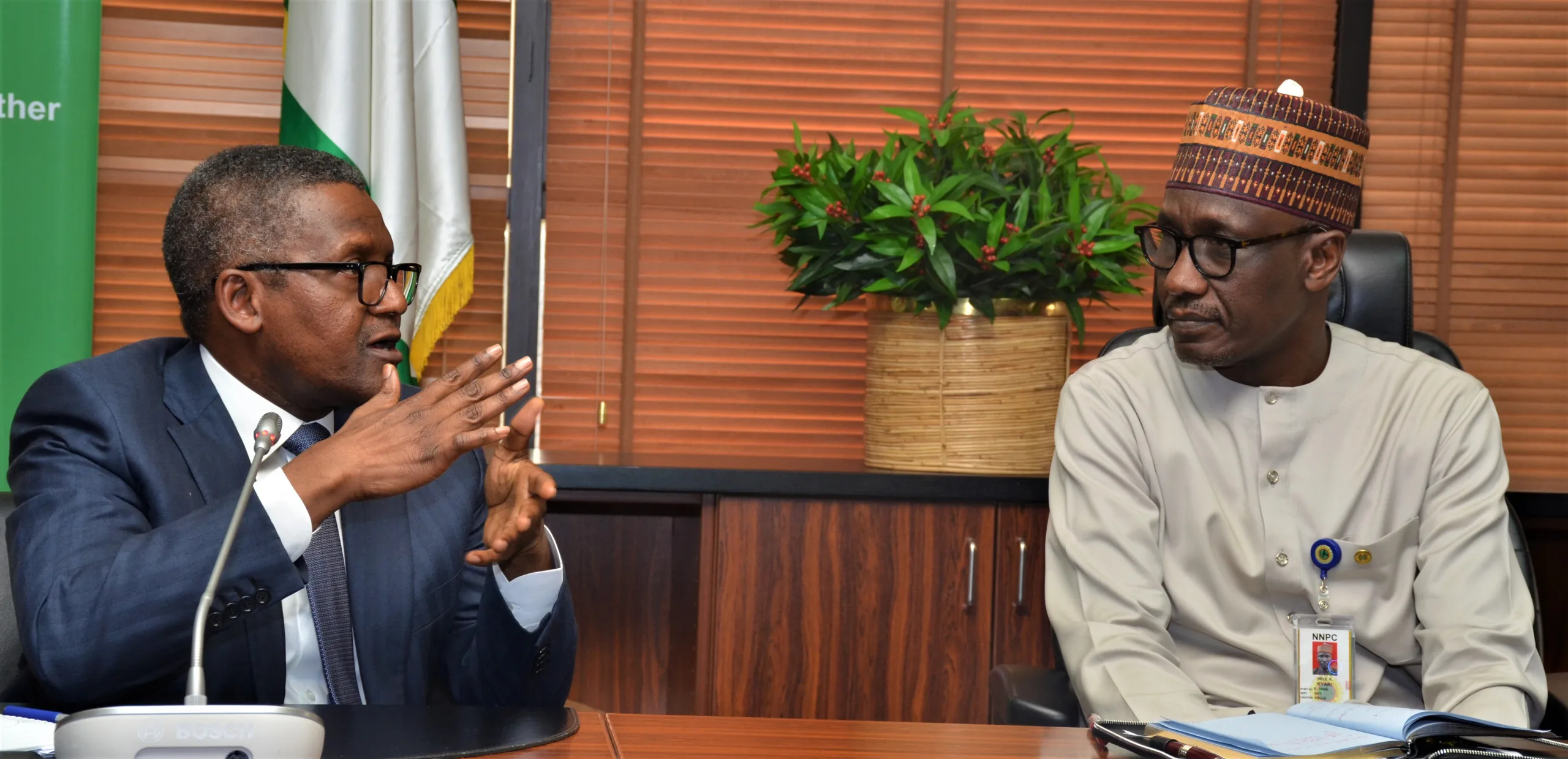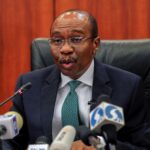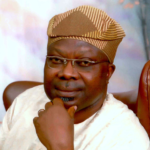The Petroleum and Natural Gas Senior Staff Association of Nigeria (PENGASSAN) has disclosed why the Nigerian National Petroleum Company (NNPC) Limited is facing difficulties in supplying crude oil to the Dangote Refinery.
The revelation was made by PENGASSAN President, Festus Osifo, during a Channels TV interview on Thursday.
Join our WhatsApp ChannelWhy NNPC Can’t Meet Crude Supply Demands
Osifo stated, “The NNPC does not have enough crude to supply Dangote Refinery, and this stems from a loan taken by the previous government under Muhammadu Buhari. This loan, secured from Afreximbank, had crude oil tied as collateral to ensure repayment.”
READ ALSO: NNPCL VS Dangote Refinery: Price War Or Fraud?
This, according to Osifo, has left the NNPC unable to provide the required crude oil for the Dangote Refinery, even though discussions for supply should have started much earlier.
He continued, “What clearly happened was that Dangote built his refinery. They started discussing crude supply. But in the oil and gas industry, it’s a highly regulated space, and the issue of pricing became a significant hurdle.”
The Price War Between NNPC and Dangote Refinery
Osifo explained the complexities of the price dispute between the NNPC and Dangote Refinery. He said, “Most international oil companies (IOCs) are demanding a premium from the Dangote Refinery. If Dangote wants crude supply immediately, they would have to pay a higher price, which led to the initial disagreements between Dangote Refinery and the suppliers.”
Moreover, the NNPC has its own crude tied to debt repayment obligations. Osifo highlighted that Dangote should have begun crude supply negotiations five years ago, well before the refinery became operational. “You don’t start discussing crude supply six months into production,” he emphasised.
Pricing Disparities Impacting Fuel Sales
Further complicating matters, the NNPCL is dealing with a pricing disparity in the petroleum product supply chain. The decision to purchase refined fuel from the NNPC rather than the Dangote Refinery is influenced by this price gap.
Osifo noted, “There have been instances where the NNPC buys Premium Motor Spirit (PMS) at around N950 and sells it to independent marketers at N700, which keeps prices lower than what they would be if buying directly from Dangote Refinery.”
This price disparity gives independent marketers a financial incentive to purchase from the NNPC rather than directly from Dangote, even though major marketers often buy fuel at prices similar to the NNPC’s purchase rate from Dangote.
NNPCL’s Strategic Role in the Oil Market
Osifo pointed out that the NNPCL plays a critical role in controlling fuel prices. “Independent marketers prefer to purchase from NNPCL to take advantage of the lower prices,” he said. This strategy helps stabilize fuel prices in the market, though it creates challenges for Dangote Refinery, which must sell at higher prices to recover costs.
The situation has led to a complex dynamic where the NNPC’s debt and pricing policies affect the broader petroleum market. Despite the ambitious goal of boosting Nigeria’s refining capacity through the Dangote Refinery, supply chain issues, pricing disputes, and NNPC’s obligations have delayed the seamless operation many had hoped for.
As the Nigerian oil and gas industry grapples with these supply challenges, the Dangote Refinery’s potential remains tied to the resolution of price disputes and the NNPC’s ability to meet its crude supply obligations. The insights provided by PENGASSAN highlight the need for a more coordinated effort in addressing the structural challenges within the sector to fully leverage the refinery’s capacity for the country’s energy future.
Emmanuel Ochayi is a journalist. He is a graduate of the University of Lagos, School of first choice and the nations pride. Emmanuel is keen on exploring writing angles in different areas, including Business, climate change, politics, Education, and others.
- Emmanuel Ochayihttps://www.primebusiness.africa/author/ochayi/
- Emmanuel Ochayihttps://www.primebusiness.africa/author/ochayi/
- Emmanuel Ochayihttps://www.primebusiness.africa/author/ochayi/
- Emmanuel Ochayihttps://www.primebusiness.africa/author/ochayi/

















Follow Us